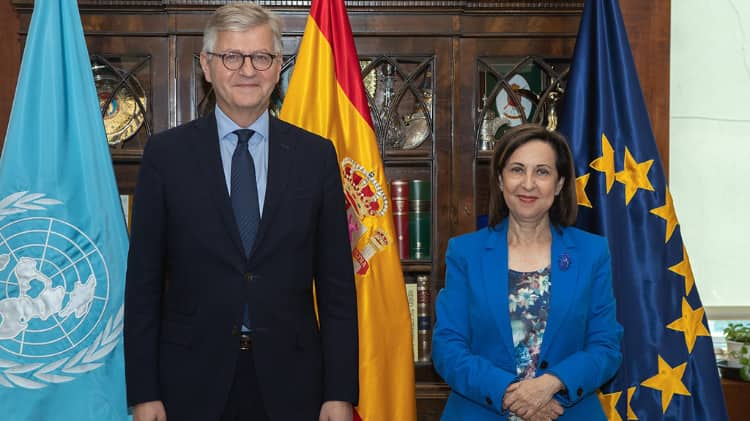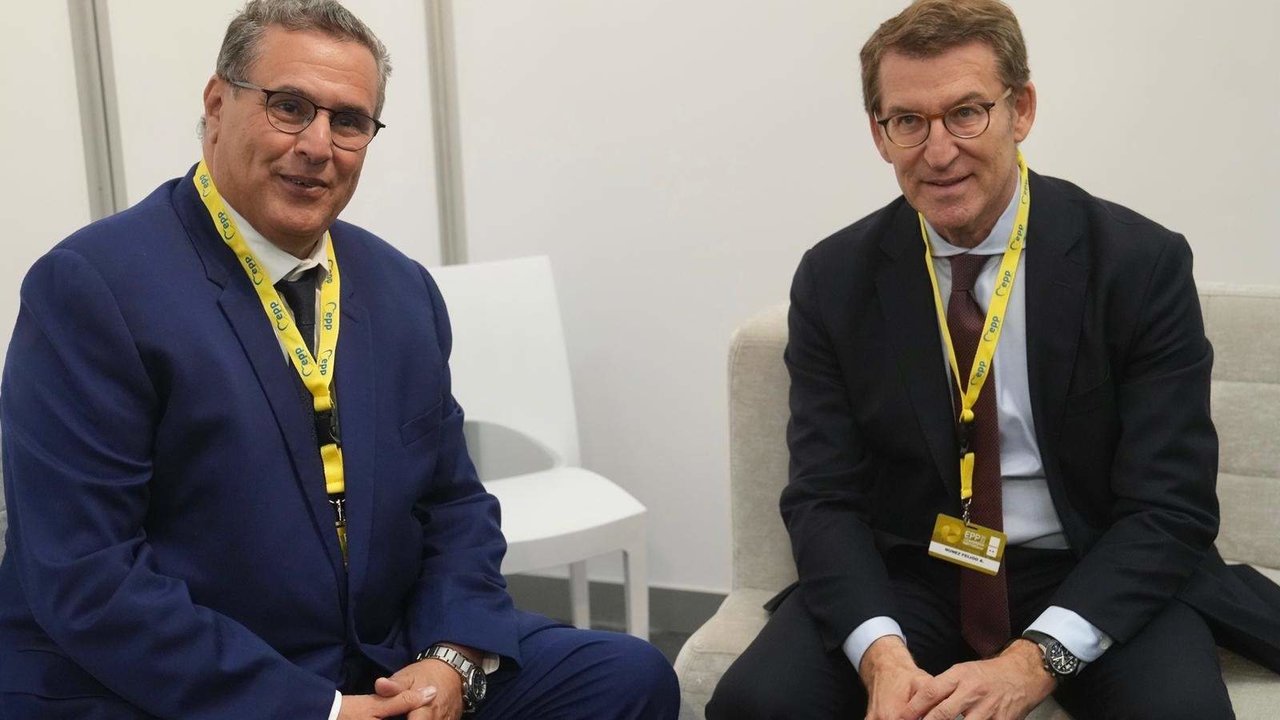The Diplomat
The Ministers of Foreign Affairs and Defence, José Manuel Albares and Margarita Robles, yesterday expressed Spain’s commitment to its peace missions “to contain and prevent conflicts” to the United Nations Secretary General for Peace Operations, Jean Pierre Lacroix.
During a visit to Spain, Lacroix held meetings with Albares and Robles at the headquarters of their departments. “Spain will continue to be fully committed to the United Nations and to peacekeeping,” said the Foreign Minister after the meeting.
For its part, the Ministry of Defence reported that Robles and Lacroix discussed the “worrying” situation in some areas of the Sahel, where the spread of jihadist terrorism, ethnic clashes and the presence of undesirable foreign actors have plunged the region into a permanent situation of instability.
The Minister of Defence stressed that “attention to the Sahel is especially important at the present time” and Mali “is the nerve centre of an area where it is necessary to adopt a constructive position of mutual collaboration”.
Finally, in view of the situation caused by the war in Ukraine, Robles and Lacroix discussed the need for the United Nations to maintain the current momentum of humanitarian aid, assume greater responsibility and promote verification and peace missions as soon as a cessation of hostilities is achieved.
The UN representative and the Spanish ministers also discussed the situation in the Sahel, where the UN participates through the MINUSMA mission, of which Spain is not a member, although it is involved in the European Union’s operation in Mali.
Spain participates in the UN missions in Lebanon and Colombia. The Lebanon mission is currently headed by a Spanish general and has the largest deployment of Spanish military personnel abroad, with more than 600 troops.
The aim of the UNIFIL mission is to guarantee peace on the border between Lebanon and Israel, facilitate access to humanitarian aid for the civilian population and the voluntary and safe return of displaced persons.
Since the beginning of the mission, Spain has been responsible for the complicated Eastern Sector, integrating under Spanish command countries as diverse as El Salvador, Serbia and Brazil.






